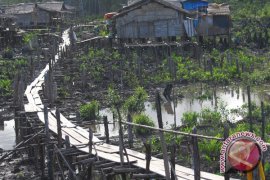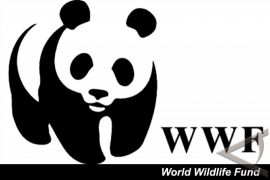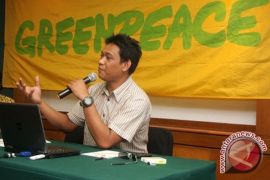"It is a good initial step. The agency, however, will be effective and successful if it would involve the community by making public the forestry data, which had so far remained undisclosed," Teguh Surya, Greenpeace Indonesias foreign campaigner, noted in a press statement received here on Friday.
He believed that President Joko Widodo has taken a huge step in the right direction to overcome the damage caused to peatland areas in the country by proposing to use canals to water them again.
He also praised the issuance of Government Regulation Number 71 of 2014 that imposes a moratorium on peatland exploitation.
He, however, pointed out that the regulation had failed since it was not strengthened, while the follow-up plan was not on a large scale and lacked coordination.
He noted that the Peatland Restoration Agency had limited authority, and hence, the government and all its ranks must cooperate to support it, including in the field of coordination and implementation at regional levels.
Based on the presidents Regulation Number 1 of 2016, the agencys target was to restore only two million hectares until 2020, which is still far below the total area of damaged peatlands that needs to be mapped and restored by the government, he emphasized.
"Permanent fire prevention would only be effective if restoration is carried out across areas that have been damaged and not limited to the two million-hectare area, with a fixed timeline and indicators," he pointed out.
"As we all know, forest fires had occurred in several provinces last year. In connection with this, I today announce the establishment of the Peatland Restoration Agency based on a presidential regulation that I had already signed on January 6," President Widodo stated while announcing the establishment of the Peatland Restoration Agency at the state palace on Wednesday.
He said the agency would later coordinate efforts to restore the peatland areas in several provinces.
The president said that the appointed chairman Foead had the required competence and experience, especially in coordinating with ministries and state institutions as well as international agencies.
"Action plans must immediately be made and implemented to specially convince the international community that Indonesia is serious about handling peatland problems," he added.(*)
Editor: Heru Purwanto
Copyright © ANTARA 2016





